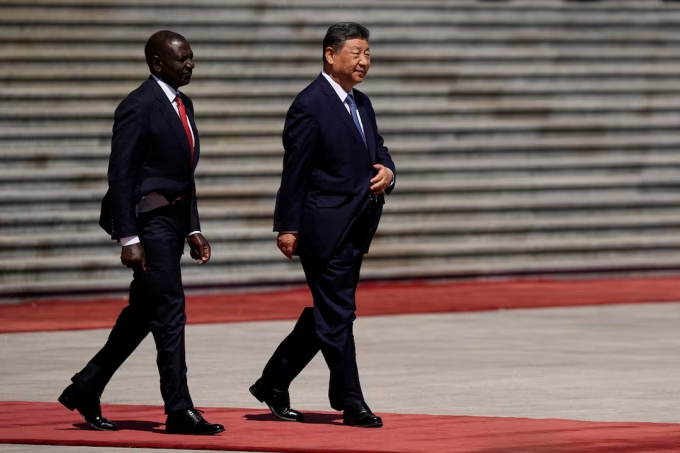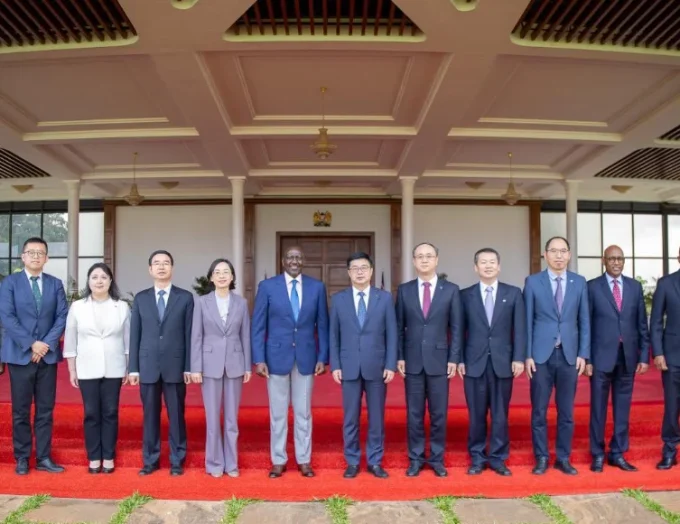China’s economic shifts are creating waves in the global markets, positioning Bitcoin as a beacon of stability. This symbiosis is paving the way for a redefined global economy where decentralized currency plays a pivotal role. Because mining is essential to the growth and upkeep of bitcoin, those participating in it are awarded especially when using places like Syntro Coin.
A Shifting Global Economic Paradigm
The emergence of a new global economic paradigm has become increasingly evident as nations grapple with unprecedented financial and technological shifts. At the heart of this transformation is the ascendance of digital currencies, with Bitcoin leading the charge, introducing a novel dimension to the concept of money and value exchange. This shift is underscored by a move away from traditional economic models that have long been influenced by the policies and fiscal health of dominant nations such as China.
China’s recent economic tremors have sent ripples across the globe, underscoring the vulnerabilities inherent in tightly controlled, centralized financial systems. The country’s significant role in global manufacturing and its status as a major creditor to numerous economies means that any fluctuation in its economic stability is keenly felt worldwide. However, it’s not just the macroeconomic tremors from China that are catalyzing change; it’s also the response from individuals and businesses seeking stability in an unstable fiscal world.
See >> Can Trustless Protocols Promise Stability?
Bitcoin, by its nature, offers an alternative to this instability. Its decentralized framework presents an attractive option for those disillusioned with the traditional banking systems and the vicissitudes of centralized economic governance. The currency’s detachment from any single nation’s economic policy allows it to operate on a level that is as international as the internet itself. Unlike any national currency, its value isn’t directly eroded by inflation or manipulated through interest rates set by a central bank, making it inherently appealing in an economically unpredictable world.
Moreover, the technology underpinning Bitcoin – blockchain – is lauded for its ability to provide transparency and security, characteristics often found lacking in conventional financial systems. The permanence and immutability of the blockchain ledger make it a formidable tool against fraud and corruption. It is a foundational piece of the digital economy that extends beyond mere currency, potentially redefining everything from contracts to asset ownership.
Yet, the rise of Bitcoin and its ilk does not come without its challenges. Regulators worldwide are still grappling with how to integrate cryptocurrencies within existing financial frameworks. Concerns around illicit activities, market volatility, and consumer protection have led to calls for more stringent oversight. Despite these concerns, the potential for digital currencies to streamline global trade, empower financial inclusivity, and decentralize economic power is immense.
The Role of Governments and Central Banks
The role of governments and central banks in the evolving financial landscape is a complex and critical one, particularly as the ascent of digital currencies like Bitcoin presents both opportunities and challenges. As the custodians of national monetary policy, central banks have traditionally wielded considerable power over the economy, controlling inflation, issuing currency, and setting interest rates. However, the digital currency revolution is prompting a reevaluation of these roles.
One of the central responses has been the exploration and in some instances, the implementation of Central Bank Digital Currencies (CBDCs). CBDCs represent a significant acknowledgment by governments and central banks of the utility and inevitability of digital currencies. Unlike decentralized cryptocurrencies, CBDCs offer a digital form of a nation’s official currency, where the central authority retains control over the monetary policy. This digital transformation could potentially streamline payment systems, making them faster and more efficient, and provide a government-sanctioned alternative to privately issued cryptocurrencies.
Moreover, governments and regulatory bodies are also looking to establish frameworks that could integrate digital currencies into the existing financial systems while addressing concerns such as money laundering, tax evasion, and financial stability. The anonymity and ease of cross-border transactions that cryptocurrencies afford, while beneficial in many respects, also pose a significant challenge to national and international regulatory bodies attempting to monitor and regulate the flow of money.
>> An Overview of Blockchain Landscape in Ireland
Balancing the need for regulation with the desire to foster innovation is another key role for governments. Overregulation could stifle the growth of a potentially transformative industry, while under-regulation might leave consumers vulnerable and risk financial stability. Therefore, central banks and governments are in constant deliberation to strike the right balance, and this has resulted in a varied regulatory landscape where some nations have embraced digital currencies, while others have taken a more cautious or even prohibitive stance.
Additionally, central banks are increasingly cognizant of the need to understand and engage with blockchain technology. Recognizing that this technology extends beyond currencies and has the potential to revolutionize entire sectors, central banks are researching and developing blockchain-based solutions that could transform everything from securities trading to the way central banks themselves operate.
Conclusion
Amidst China’s financial fluctuations, Bitcoin has emerged stronger, hinting at a new economic era. As governments and central banks adapt, the interplay between national policies and cryptocurrency innovation will sculpt the economic landscape of tomorrow.













Leave a comment